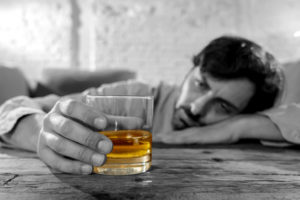Table of Contents


Sadly, many of your friends socialize at bars, leaving you surrounded by familiar temptations. Beer and liquor are no longer your only drink options, however. There are now several non-alcoholic beer options that taste close to the real deal. But are they really your best friend or your worst enemy after detox and rehab?
While non-alcoholic beer is not up to par with fine craft beer choices, many alcoholics notice that it does taste quite similar to light beers. If you’ve just recently completed your rehab, this could be a dangerous path to choose. The familiar taste might make you slip back into old habits, as taste and smell are some strong triggers.
Worse yet, you could mistakenly grab someone else’s real brew without even realizing it. No, that one slip doesn’t mean that you’ll definitely slip back into alcohol abuse, but it could give you the false notion that “just one” won’t harm you. Before you even realize it, that one beer with buddies will spiral into the consumption of an entire six-pack.
Despite the fact that non-alcoholic beers claim to be completely free of the key ingredient, they still can contain trace amounts of alcohol. Indeed, United States guidelines permit these beverages to contain as much as 1.2 percent ethanol.
Here is a sadder truth. Even small amounts of that ingredient can harm patients with final-stage liver diseases.
Because patients with these disorders don’t have functioning livers, dangerous levels of ethanol can accumulate in their weakened organs in a blink. For example, one study identified a patient whose blood alcohol level soared to 57 mg/dL after drinking non-alcoholic beer. Another study pointed to breastfeeding women who drank 1.5 liters of non-alcoholic beer; within one hour, researchers found trace amounts of ethanol in the breast milk one to three hours after consumption.


Reconnecting with friends and family post-rehab treatment is essential to maintaining your sobriety. Without their support, feelings of loneliness can send you reaching for your old friend alcohol for comfort. In this case, perhaps one bottle of non-alcoholic beer to sip at will put you at ease; it might make it worth the risks. Do remember that you can choose other beverages at a bar like a root beer, cola, lemonade, or iced tea—just stay away from the Long Island type!
For most in recovery, the risks of opting for non-alcoholic beer outweigh the advantages. Only you can make that final choice for yourself. If you feel at all that holding that bottle of non-alcoholic beer will cause a relapse, then stick with water instead.
Charles F. has been an active part of the Florida recovery community for over 5 years. He began as a behavioral health technician at an addiction treatment facility in Ocala, Florida and has since begun training as a Licensed Addiction and Chemical Dependency counselor in Boca Raton. Charles’ passion involves the promotion of recovery and helping spread the hope of recovery to as many readers as possible!